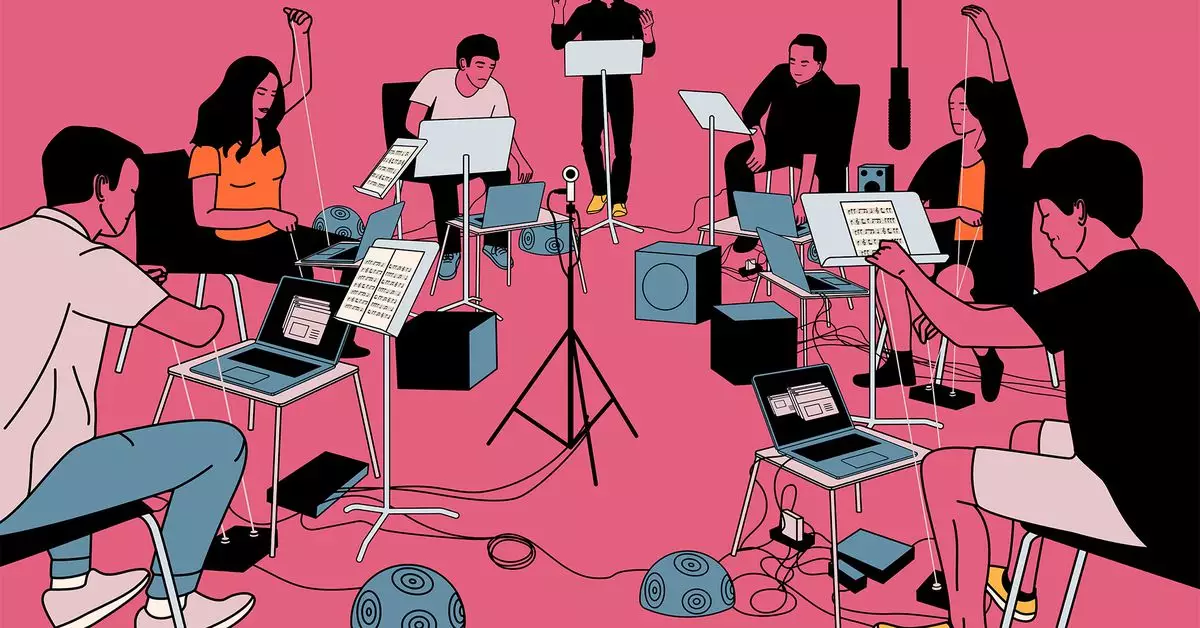In an era where digital technology permeates every aspect of our lives, the realm of music creation is undergoing a paradigm shift. Ge Wang, an influential figure in the intersection of technology and music, embodies this evolution. As an associate professor at Stanford University and the driving force behind the acclaimed Laptop Orchestra, Wang’s approach to music-making diverges significantly from traditional methods. He harnesses computers not merely as tools, but as dynamic collaborators capable of creating unique auditory experiences — a concept he aptly terms “computer music.”
Wang’s educational philosophy transcends conventional music teaching. Instead of instilling rigid mastery of instruments or software, he advocates for a playful interaction with technology. This fresh perspective encourages his students to explore and experiment, using technology as a means of discovery rather than merely a framework to achieve a set goal. In a world where algorithms and artificial intelligence are becoming integral to music production, this approach becomes even more essential. By shifting the focus from adherence to standards to fostering creativity, Wang empowers a new generation of musicians to explore uncharted territories.
The advent of AI technologies has sparked debates about creativity and originality in artistic disciplines. When discussing the future of music within the context of AI, Wang navigates complex questions about what it truly means to be creative. With an influx of tools designed to simplify the creation process, one must ponder: Does ease equate to value? Are we sacrificing the depth of human experience for the sake of convenience?
As technology strives to refine artistic expression, there is a growing risk that creativity could become mechanized, resulting in a homogenization of artistic output. Wang’s insights provoke critical reflections on the implications of relying on AI-driven tools. What remains of the artist’s voice when the tools of creation are prevalent and accessible to all?
The conversation about music and technology inevitably leads us to confront existential questions about our role as creators in a rapidly advancing digital landscape. In the quest for efficiency, we must safeguard the nuances that make artistic endeavors richly human. Wang’s arguments highlight a crucial tension in the digital age: the need for innovation must not come at the expense of the unique, often imperfect, aspects of human creativity.
As we chart a course into the future, we must deliberate on the purpose of our creative endeavors. Are we artists simply aiming for polished products, or are we reveling in the messiness and growth that comes with the creative process? The dialogue that emerges from this intersection of music, technology, and humanity is one that demands our attention as we navigate the complexities of contemporary artistry.
Ge Wang’s vision for the future of music invites us to celebrate creativity’s intricacies. Embracing technology should enhance our artistic expressions rather than dilute them. The essence of being human lies in the joyful complexity of creation, a sentiment that will resonate deeply in our increasingly tech-driven world.

